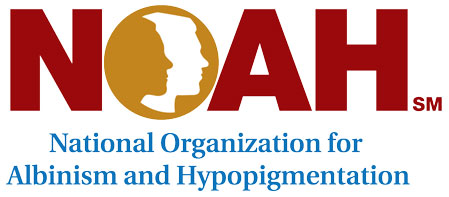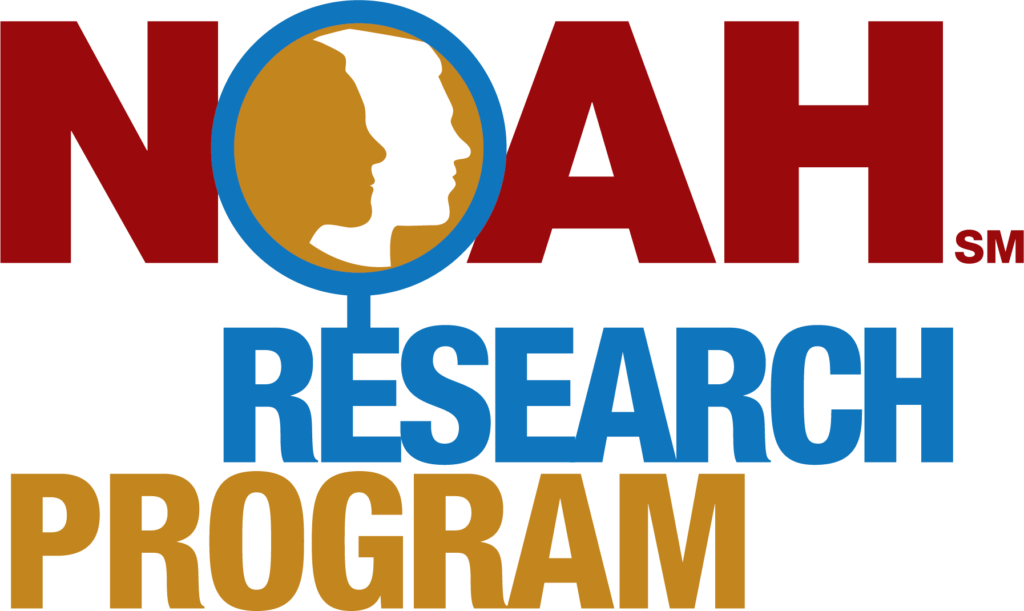
Support the NOAH Research Program
2023 Program Spotlight
Apply to Join the NOAH Research Program Committee
2023 Research Grants Awarded
Meet the Research Grant Awardees
Call For Proposals
Other Albinism Research
NOAH Research Program!
Since its inception, NOAH has maintained a connection to research. Dr. Carl Witkop, one of NOAH’s founders, was a renowned international albinism researcher. NOAH has always had a Board of Scientific Advisors, and NOAH’s conferences have included presentations by top scientists in albinism research. Although NOAH has regularly shared research information with its community and written letters of support for research grant applications, prior to 2021, NOAH didn’t have a formal research program that supported and funded new research in albinism.
Our Commitment
NOAH will become a leading voice in albinism research through the work of its Research Program. Funded research will be patient-centered and will help develop a greater understanding of albinism. The Research Program can support this commitment in two ways: 1) funding impactful research and 2) building a community of top-notch researchers who are engaged with the albinism community. To support these goals, the Research Program will use a scientific peer-review process to identify methodologically rigorous research proposals that have the potential to improve the lives of those affected by albinism. This is an opportunity not just to fund albinism research, but also to shape research to answer questions most important to people with albinism like, “Am I at a higher risk of cataracts?” “Should my child get nystagmus surgery?”.
Excited?!
We are too! The success of this Research Program relies on the support of our community. If you are interested in supporting the NOAH Research Program, consider making a gift:
2023 Research Grants Awarded
NOAH is pleased to announce the award of research grants totaling $125,000, presented to four institutions conducting albinism research…
Check out the full press release!
Meet the Research Grant Awardees!
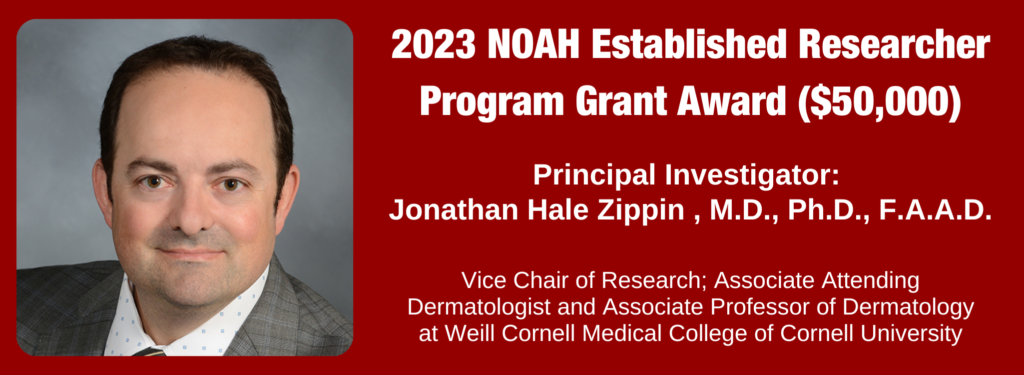
2023 NOAH Established Researcher Program Grant Award ($50,000)
Institution:
Weill Cornell Medical College of Cornell University (New York, USA)
Principal Investigator:
Jonathan Hale Zippin , M.D., Ph.D., F.A.A.D.
Vice Chair of Research; Associate Attending Dermatologist and Associate Professor of Dermatology at Weill Cornell Medical College of Cornell University
Non-Key Personnel:
Zuhal Eraslan, Ph.D., Post-doctoral fellow, Weill Cornell Medical College of Cornell University.
Collaborations:
David Adams, M.D., Ph.D., National Institutes of Health.
Peter Meinke, Ph.D., Tri-Institutional Therapeutics Discovery Institute.
Research Project Title:
Development of soluble adenylyl cyclase inhibitors to improve ocular pigmentation.
Research Project Summary:
Most cases of albinism are due to an inability of melanocytes, pigment producing cells, to control the pH, the acid/base level, of the melanosome, the organelle that makes pigment. We have discovered that blocking a protein called soluble adenylyl cyclase corrects the abnormal pH in albino melanocytes. We are developing new drugs to block this pathway and we predict that these drugs will lead to new treatments for albinism.
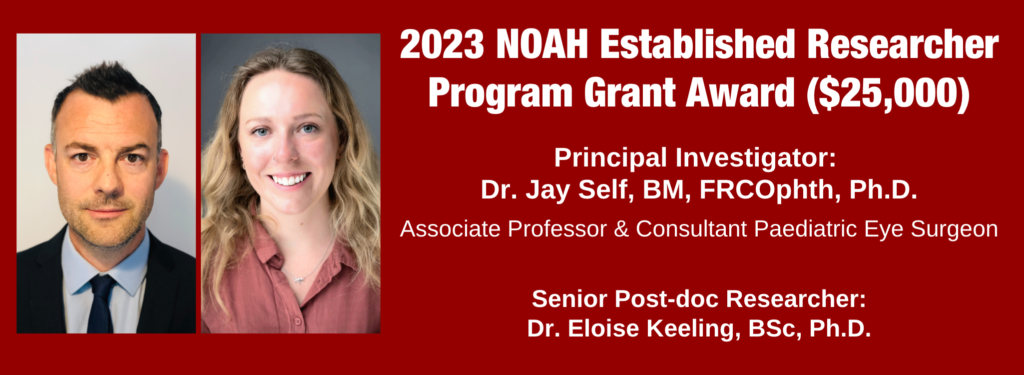
2023 NOAH Established Researcher Program Grant Award ($25,000)
Institution:
University of Southampton (England, UK)
Principal Investigator:
Dr. Jay Self, BM, FRCOphth, Ph.D.
Associate Professor and Consultant Paediatric Eye Surgeon
Senior Post-doc Researcher:
Dr. Eloise Keeling, BSc, Ph.D.
Research Project Title:
High-throughput drug screening to identify novel targets for OCA1 treatment.
Research Project Summary:
Albinism is a group of conditions causing lack of pigment and problems with vision. Many different genetic forms exist and until now, finding treatments to try to help alleviate some of the symptoms related to the condition has been difficult. In recent years, we have developed a way to test hundreds, even thousands of possible interventions. This method uses specially-created cells which have been modified to possess the same common genetic change we see in patients with albinism. This grant from NOAH will allow us to test almost 1000 possible treatments in our evaluation and identify hits which could further be translated into clinical trials.
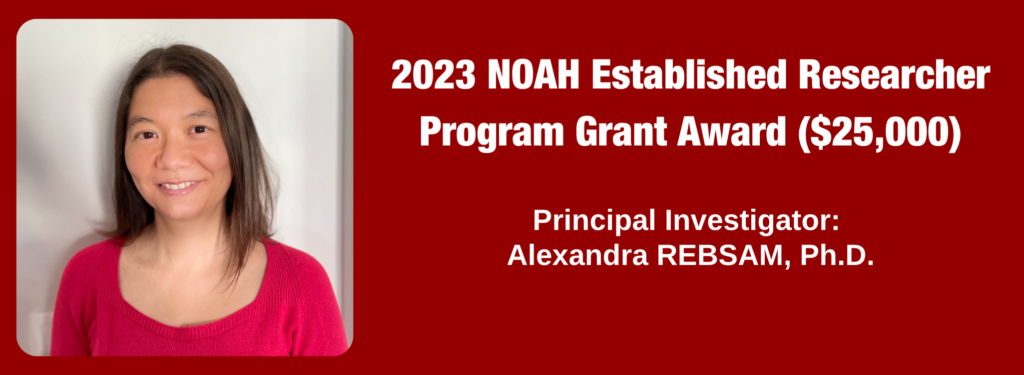
2023 NOAH Established Researcher Program Grant Award ($25,000)
Institution:
Institut de la Vision (Paris, France)
Principal Investigator:
Alexandra REBSAM, Ph.D.
Key Personnel:
Bérénice SAGET, Ph.D. student
Laurice NASSAR, Engineer
Collaborators:
Saint-Pères Paris Institute for the Neuroscience (Paris, France)
Bruno GASNIER, Ph.D.
Cécile JOUFFRET DEBACKER, Engineer
Research Project Title:
Signaling pathways at the origin of retinal deficits in albinism.
Research Project Summary:
Our project aims at finding the mechanisms in albinism leading to the altered retinal development, downstream of tyrosinase, known to be at the origin of OCA1. Using mouse and in vitro models, we will explore the role of two candidates known to impact retinal development that may act at the level of the retinal pigmented epithelium and could be modified in the context of albinism.
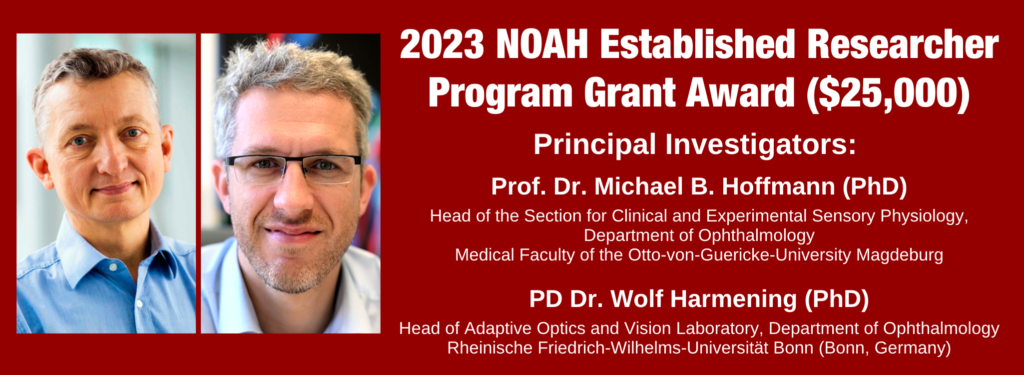
2023 NOAH Established Researcher Program Grant Award ($25,000)
Institution:
Medical Faculty of the Otto-von-Guericke-University Magdeburg ( Magdeburg, Germany)
Principal Investigators:
Principal Investigator (responsible for management of the project)
Prof. Dr. Michael B. Hoffmann (PhD)
Head of the Section for Clinical and Experimental Sensory Physiology
Department of Ophthalmology
Medical Faculty of the Otto-von-Guericke-University Magdeburg
Principal Investigator
PD Dr. Wolf Harmening (PhD)
Head of Adaptive Optics and Vision Laboratory
Department of Ophthalmology
Rheinische Friedrich-Wilhelms-Universität Bonn (Bonn, Germany)
Research Project Title:
High-resolution multimodal imaging to understand the maldevelopment of foveal and binocular vision in albinism – from single cones to visual function.
Research Project Summary:
A recent discovery of retinal alterations in the eyes of persons with albinism is of promise to uncover the retinal cause of visual brain changes and visual dysfunction in albinism. By applying cutting-edge in -vivo retinal and brain imaging, we take this opportunity to set the foundation for a systematic investigation of the eye-brain-function relationship to make a difference for albinism.
Learn about past Grant Awardees
Call For Proposals – Fall 2022
The Fall 2022 Call For Proposals is no longer open.
NOAH is proud to announce a request for proposals to support albinism research focusing on our research priorities listed below. Proposals focusing on research in all types of albinism will be considered. Proposals may utilize cell or animal models of albinism and/or human patients with albinism.
OUR RESEARCH PRIORITIES:
1. Vision / visual system as it relates to albinism
2. Dermatology as it relates to albinism
FUNDING AVAILABLE:
We expect to fund up to a total of $100,000 in grants, distributed in the following programs:
- Established Researcher Program: $50,000 ($25,000 per year for two years)
- Intended to provide bridge funding for or to support expansion of existing projects from established researchers
- Pilot Grant / New Innovations Program: $25,000 ($25,000 given in one lump sum)
- Intended to provide funding to generate pilot data for new projects from junior or established researchers
ELIGIBILITY:
Applicants must hold a Ph.D., M.D., D.M.D., D.V.M., D.O., or equivalent degree and have a faculty position or equivalent at a domestic or foreign: non-profit organization, or public or private institution, such as a university, college, medical school, hospital, research institute, or laboratory.
Letters of intent will be reviewed for scientific quality and relevance to NOAH’s research priorities. Proposals with high translational relevance will receive priority consideration.
KEY DATES:
● Tuesday, January 17, 2023 at 5pm eastern: LOI Form Due with Expression of Interest Video (2-3 minutes) or Written Summary (500 words maximum)
● Week of February 6, 2023: Notification of selection for Full Application
● Monday, March 27, 2023 at 5pm eastern: Full Application Due
● April 2023: Grants Awarded
LOI FORM
Other Albinism Research
Please note: The following information is provided for your reference. Any questions regarding an item below should be directed towards the publishing institution/author.
Do you know of an additional research study or information source for people with albinism?
Contact the NOAH Webmaster for the opportunity to have it added to this page.
Current Clinical Trials Related to Albinism:
Prominent Researchers & Institutions in Albinism Research:
National Eye Institute – Pediatric, Developmental & Genetic Ophthalmology
National Eye Institute – Ophthalmic Genetics & Visual Function Branch
Hermansky-Pudlak Syndrome Network (HPS Research & other updates)
University of Minnesota – Albinism Genetic Database
American Foundation for the Blind
Scientific Literature Related to Albinism:
National Library of Medicine – PubMed.gov
Other Studies Related to Albinism:
Together with the Dutch Albinism Association, we recently launched an online survey study at the Netherlands Institute for Neuroscience on how people with albinism sleep. For this study, led by Prof. Eus van Someren, we are not only including participants from the Netherlands, but we are now calling for all English-speaking persons with albinism across the world to participate!
From personal conversations, it appears that some persons with albinism have trouble sleeping. However, we do not yet know how prevalent problematic sleep is among them, as this has never been studied on a large scale. Therefore, the first goal of this study is to identify how many people with albinism sleep well and how many sleep poorly.
For the poor sleepers, we also investigate what the possible causes are and whether these are related to albinism. For example, we know from research in people without albinism that poor sleep is more common in people who are exposed to too little or too much light, or in people with unpleasant childhood experiences. But we know nothing yet about the mechanisms underlying poor sleep in persons with albinism, possibly directly or indirectly related to albinism. With this research, we hope to better understand problematic sleep in persons with albinism and reveal targets to improve their sleep in the future.
Get involved and make a difference, because the participation of many persons with albinism from across the world can lead to valuable new insights! If enough people from different countries participate, we can even investigate the potential influence of culture and geographical location.
Who can participate?
All adults (18+) with albinism. It doesn’t matter how well you sleep, we need everyone- ranging from good to bad sleepers- to get an accurate view of how prevalent sleep problems are. Additionally, while participation of poor sleepers helps to understand the causes of bad sleep, participants who always sleep well have the secret to good sleep without even realizing it!
How can you participate?
Participation consists of completing several one-time questionnaires at a time that suits you. These questionnaires, hosted on the Dutch Sleep Registry website, have been made accessible to visually impaired people and tested by the core team of the Dutch Albinism Association. Their feedback has been taken into account to fine-tune the questionnaires.
To participate, use the following link: www.slaapregister.nl/en/albinism. You will be asked to create an account before accessing the questionnaires.
The control group
To investigate whether and why people with albinism sleep worse than people without albinism, the study includes a so-called matched control group. This consists of people without albinism from the environment of the participant with albinism. This includes partners, friends, and acquaintances- but no blood relatives. Each participant with albinism receives further information on how to invite their matched control participant(s). Inviting control participants is preferred, as it is very valuable to the research, but not mandatory for those who are not in the opportunity to invite anyone.
Reward
After completing all questionnaires, participants have a chance to win a gift certificate of €25 (converted to your local currency)! Of course, this applies to both participants with albinism and those in the control group.
For more information, visit www.slaapregister.nl/en/albinism or email the research team at info@slaapregister.nl
Updated: May 8, 2024
A Research Study about Racial Identity Development in African American with Albinism
Research Description & Purpose: Researchers at the Michigan School of Psychology want to learn how racial identity is developed in African American people with Albinism. This research study is for adults aged 18 and over. Research is always voluntary!
Would the study be a good fit for me? This study may be a good fit for you if:
· You are at least 18 years old
· You identify as African American
· You have Oculocutaneous Albinism
· You are willing to participate in a 1-2 hour interview to share your experience.
What would happen if I took part in the study? If you decide to take part in the research study, you would have a phone screening prior to your interview to ensure that you are a good fit for the study, and then a virtual interview that would be recorded for later transcription.
Participants who take part get a $20 Amazon Gift Card to thank them for their time.
This research will take place virtually through Zoom.
Contact Information: To take part in this research study or for more information, please get in touch with Jasmyn Irvin at jirvin@msp.edu
PI Name, department & address: The principal researcher for this study is Jasmyn Irvin at the Michigan School of Psychology.
Study IRB#: 220902
Updated: November 28, 2023
University of Iowa Hospitals & Clinics and National Advanced Driving Simulator
Bioptic Telescope Driving Study
Colleagues at the University of Iowa Hospitals & Clinics and the National Advanced Driving Simulator are looking for volunteers who are required to wear a bioptic telescope while driving to participate in a research study. The purpose of the study is to understand how drivers with visual impairments use their bioptic telescopes when they drive. The study will be conducted in two phases: a questionnaire and an on‐road driving phase. The online questionnaire will collect demographic information along with details about your visual impairments, health history, medication use, driving history & patterns, and bioptic telescope use while driving. It will take approximately 10 to 15 minutes to complete.
The information gained from the questionnaire will assist in the development of the on‐road driving phase. At the completion of the questionnaire, you will be asked if you would like to be considered for participation. If you are interested, we will collect your name and contact information. Completing this section does not obligate you to participate. Only a small sample of those who provide contact information will be contacted.
Who is eligible?
– Current valid U.S. Driver’s license
– Current license requires the use of bioptic telescope to drive
If your meet these requirements and you are interested in participating, please go to the following link to complete the questionnaire:
https://uiowa.qualtrics.com/jfe/form/SV_0PzwGjfryMJn7PT.
More information: Study Info Letter
If you have any questions or have trouble completing the questionnaire, please contact Cheryl Roe at the National Advanced Driving Simulator by email at cheryl‐roe@uiowa.edu or call 319‐335‐6803. For more information about the National Advanced Driving Simulator, please go to www.nads‐sc.uiowa.edu.
Updated: September, 2022
Access to Resources in Individuals with Albinism
Researchers at the Medical College of Wisconsin are conducting an anonymous research survey to learn more about access to genetic testing, vision care, and other resources for individuals with albinism. Respondents ages 18+, or parents/guardians of minors, who have been diagnosed with albinism, wanted for survey study. For more information or to take the survey visit: https://redcap.mcw.edu/surveys/?s=43XCTF43EK
Updated: June 6, 2022
Current and Potential Tele-Visual Rehabilitation & Visual Functions’ Assessment (a form of Telehealth)
survey designed by: Dr. Rasha S. Moustafa, Consultant Ophthalmologist. The Director & Consultant Head of the Low Vision & Visual Rehabilitation Units at Dar El-Oyoun and Magrabi Eye Hospitals & Centers, Egypt. And Dr. Lobna Hassan, Postdoc Researcher in Tampere University & Hanken Business School, Finland, with advice from Dr. Michael Crossland, UCL and Moorfields Eye Hospital, London, UK.
This survey looks at professionals’ experience with providing remote “Low Vision Assessment” & “Tele -Visual Rehabilitation”. We are interested in professionals who have done any or all of the following: Assessing Visual Functions (Visual Acuity, Refraction, Contrast Sensitivity, Colour Vision, Glare Sensitivity, Visual Fields), Functional Vision, QoL & various aspects needed for prescribing solutions as a part of providing visual (re)habilitation plans, and it’s follow up services e.g: low vision devices, advice, and training or early support. For this survey, the prefix “tele” means “from a distance” [not meaning telephone only], as a form of “Telehealth”, it is defined as providing services through the use of telecommunication technologies and electronic information (e.g: landlines, wireless communications, the Internet, smartphones, applications, wearable devices, VR, etc.) whether synchronously as in video or telephone-based appointments or asynchronously as in the transmission of recorded & stored digital images, videos, or text files. The surveyed professionals may be using one or more of these technologies during an appointment. This survey is for healthcare professionals such as optometrists, ophthalmologists, dispensing opticians and orthoptist, rehabilitation specialists, as well as qualified teachers of visually impaired children and young people (QTVI). It will be followed by another one for ‘Technical Support Teams’ as it evolves. This research is conducted as part of a non-profit research project & is self-funded up to date. Answering this survey is voluntary and you may stop answering it at any point. All data collected through this survey will be anonymized & kept strictly confidential. E-mail addresses asked for at the end of the survey are optional for respondents who wish to be contacted with results & further collaboration opportunities. This information will be kept separate from the other survey data. We thank you for your patience and for taking the time for filling out this survey.
If interested, please complete the survey: tinyurl.com/teleLVAsurvey
*This survey is for healthcare professionals such as optometrists, ophthalmologists, dispensing opticians and orthoptist, rehabilitation specialists, as well as qualified teachers of visually impaired children and young people (QTVI). It will be followed by another one for ‘Technical Support Teams’ as it evolves.
Recruitment ends January 31st
Contact Rasha S. Moustafa at Dr.rashasameer@gmail.com with any questions.
Updated: January 20, 2022
Survey about Driver Assistance Systems
Bioptic telescope drivers and normal vision drivers who are 18+ years are invited to participate in a survey study (project 2020P002139) about Advanced Driver Assistance Systems being conducted by researchers at Schepens Eye Research Institute, Boston, MA .
Participants must be current drivers and speak fluent English.
The survey takes about 30 minutes and will be conducted over the phone.
If interested, please contact Chrysanthi Stevens:
202-276-3231
Chrysanthi_Stevens@MEEI.HARVARD.EDU
Updated: March 19, 2021
Crandall University on Visual Impairment/Blindness in Emerging Adulthood
Self-Concept and Motivation in the Visually Impaired/Blind
Are you between the ages of 18-30 and currently living with a visual impairment?
If the answer to both of these questions is yes, your assistance is requested. “Self-Concept and Motivation in the Visually Impaired/Blind” is a qualitative study being conducted at Crandall University in Moncton, NB. This study aims to understand better the experience of having a visual impairment/blindness in emerging adulthood, specifically how it impacts the self-concept and motivation.
This study will use a qualitative interview questionnaire asking questions that pertain to the individual’s self-concept and motivation. The interviews will be conducted with participants individually. This process will be completed in person, or over video-chat and is expected to be one hour in length. Informed consent will be obtained before the beginning of the interviews, and as participation is voluntary, consent may be withdrawn at any time. Information collected for this study will include no identifiable information, such as names, or dates of birth, etc. Data will be kept on a password-protected computer, accessible only by the primary researcher.
Your participation would be much appreciated in helping make this research a success. For further questions or if interested, individuals can contact the primary researcher, Alisha Longmire at longmireali@crandalluniversity.ca or by calling 1-902-526-0458.
